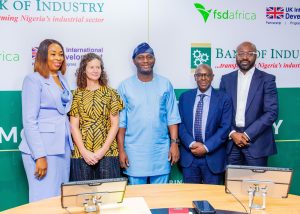Building Resilience: A path to food security in Sudan
As the conflict in Sudan drags on, life becomes more challenging by the day. Since April 2023, when violence erupted mainly between the Sudanese Armed Forces (SAF) and the paramilitary Rapid Support Forces (RSF), everyday life has been thrown into disarray. This ongoing conflict has placed severe strain on Sudan’s food systems, pushing millions into food insecurity and creating a devastating impact on Agricultural production. As of mid-2024, Sudan faces its worst food crisis yet: nearly 25.6 million people are experiencing acute food shortages, with hundreds of thousands on the brink of famine. For many, the 2024 harvest season looks grim, with even lower production than the previous year’s already sharp decline of 46% in national grain output.
Sudan’s agriculture relies on two primary growing seasons: a summer rain-fed season from May to August, with harvests in November, and a winter season reliant on irrigation from October to December. Sudanese households depend on staple crops like sorghum, millet, and wheat but the ongoing instability and the shortage of basic resources have hindered planting and harvesting cycles. Now, a resilient solution is desperately needed.
A strategic response – the rapid assessment
FSD Africa, in collaboration with British Office Sudan (BOS, also known as FCDO Sudan), commissioned a Rapid Assessment of Food and Payment Systems in Sudan for a Coordinated Food Security Emergency Response in 2023. This initiative aimed to map out immediate actions to stabilise Sudan’s food systems and improve resilience amidst the volatile situation. The findings emphasised the challenges within Sudan’s financial and agricultural sectors and underscored the need for targeted private-sector interventions to lay the foundation for both immediate food security and longer-term economic recovery.
One of the core insights from the assessment was that traditional development programmes are not equipped to operate in Sudan’s ever-changing landscape. What Sudan needs now is a more adaptable, innovative approach – one that supports local food security initiatives and prepares them to scale post-conflict.
Introducing the innovation studio for resilience
Out of this need arose the concept of the “Innovation Studio for Resilience” ISR with a £1.56 million budget, this 12–15 month pilot programme aims to provide on-the-ground support to local food system innovations. The ISR will work directly with Sudanese partners to pilot new financing models and technical solutions that can help to address urgent challenges within the agrifood sector.
Through ISR, FSD Africa and BOS will fund, co-develop and test solutions focused on improving food security and resilience. The studio will prioritise innovations that offer tangible benefits for women and marginalised communities, and small and medium enterprises (SMEs) working in agriculture. The ultimate goal is to prepare the most promising solutions for broader implementation and support Sudan’s long-term food security.
Selecting and supporting innovations
The ISR will identify innovative projects that address the financing barriers in Sudan’s agrifood sector. By working with private-sector partners, ISR will help them pilot practical solutions that could provide immediate relief and lay the foundation for sustainable growth post-conflict.
Potential projects will undergo a thorough vetting process, with each proposal evaluated based on feasibility, impact potential and the ability to withstand the complexities of the Sudanese conflict environment. Once approved, the selected innovations will receive technical assistance and grant support to help bring their ideas to life.
Central to the ISR’s approach is a commitment to action-based learning. In addition to piloting news solutions, ISR will continuously gather market intelligence and share insights with other organisations operating in Sudan. This shared knowledge will not only support the projects themselves but also deepen the understanding of how to finance and build resilience in Sudan’s agrifood sector.
The ISR will operate under a Steering Committee that ensures accountability and strategic oversight. A project management team, led by an implementing partner, will handle daily operations, including liaising with innovation partners, tracking progress and adapting the projects as needed based on real-time insights.
Expected outcomes
Through the ISR, FSD Africa and BOS aim to foster resilience in Sudan’s agrifood sector. The ISR’s success could mean:
- Enhanced resilience of Sudanese SMEs within the agri-food value chain
- Greater employment opportunities, particularly for low-income and marginalised communities and women
- Improved evidence on how to overcome market obstacles in Sudan’s conflict-impacted economy
- Scalable solutions that can extend beyond Sudan’s borders to benefit other crisis-affected regions
The ISR’s learnings will contribute to a deeper understanding of Sudan’s unique financing needs, providing a model for future interventions in fragile communities.
Looking forward
The ISR is a hopeful step forward in the face of Sudan’s current crisis. By equipping local entrepreneurs with the resources and support they need to innovate, ISR is helping Sudan build a foundation for a more resilient, food-secure future. As these innovations take shape, we look forward to sharing its progress and insights, with the goal of transforming Sudan’s agricultural landscape even in the face of adversity.





